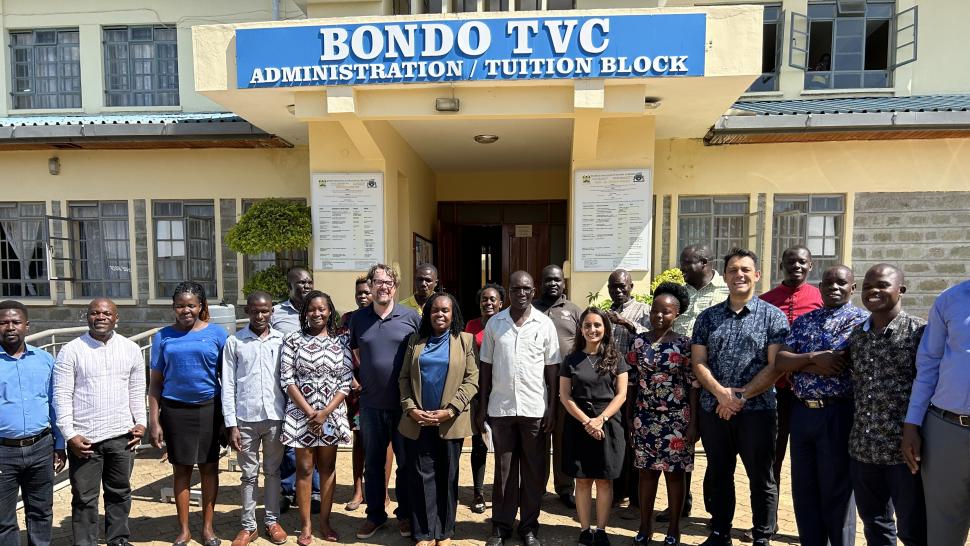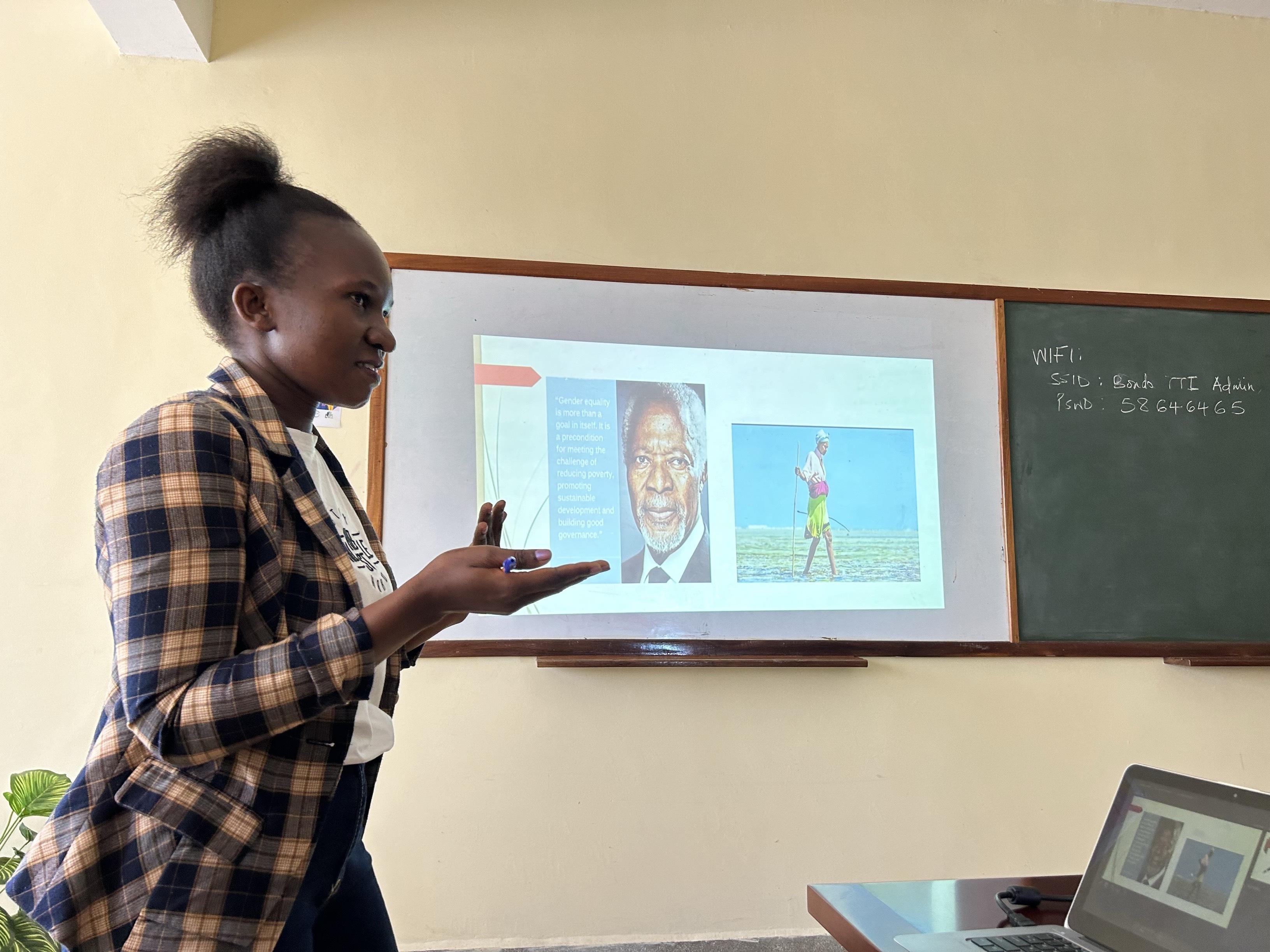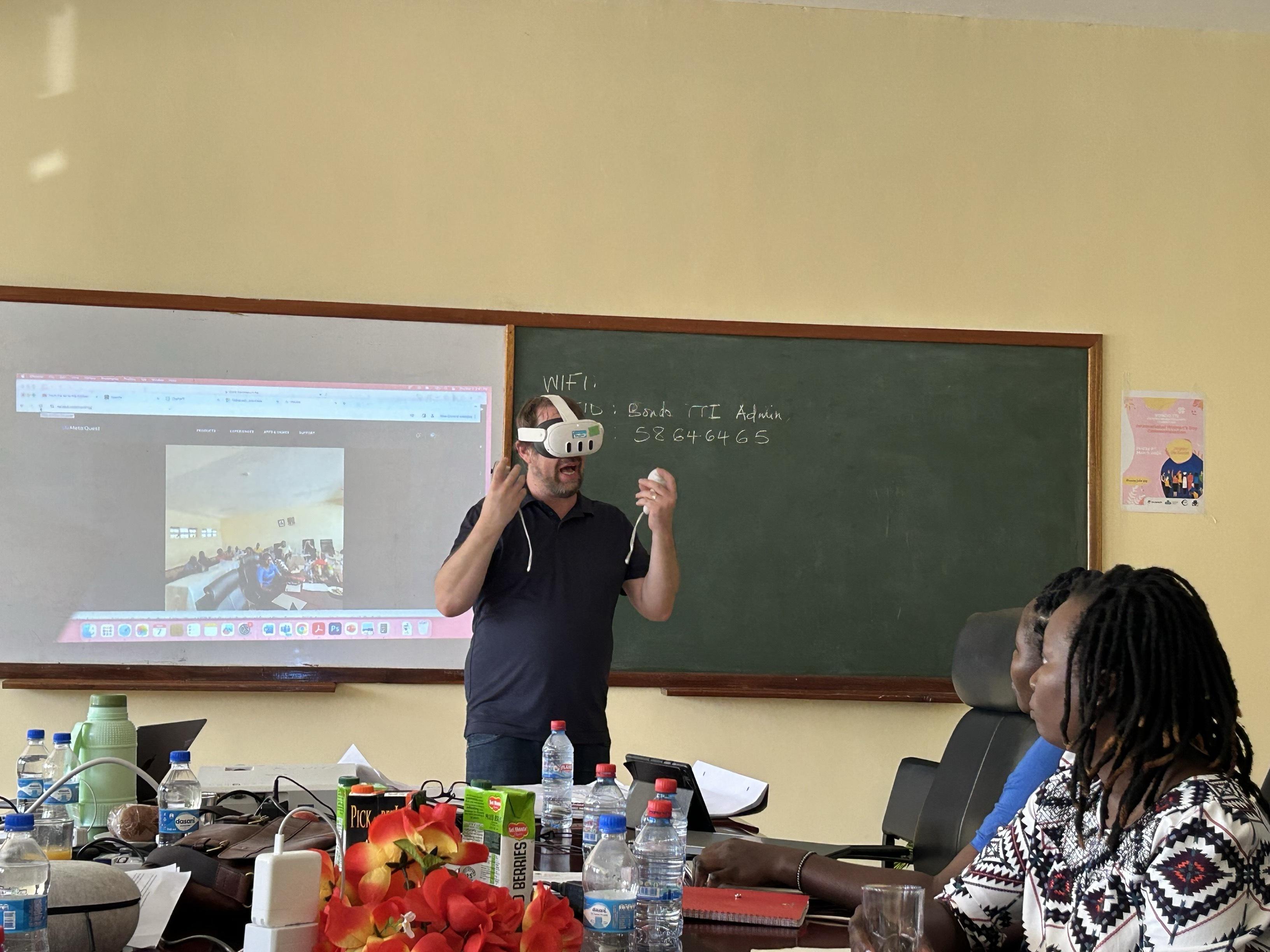
Humber College is playing an integral role in supporting skills development in key sectors of Kenya’s blue economy through a new international development project.
The blue economy refers to the ways oceans and lakes can contribute to an economy in a sustainable way.
The Kenya Blue Economy Skills Training (KBEST) Institutional Partnership is funded by the Government of Canada through Global Affairs Canada and is implemented by Colleges and Institutes Canada. It has Humber partnering with three institutions in Siaya County in the Lake Region of Kenya – Bondo Technical Training Institute, Lucy Onono Vocational Training Centre and Mahaya Vocational Training Centre.
Vidushi Sanghadia, project lead with the International Development Institute, said the initiative aims to create industry linkages and pathways for internships and jobs. It will provide women, youth and vulnerable populations with the knowledge and skills for employment and entrepreneurship in the blue economy while preserving and maintaining the oceans for future generations.
KBEST will focus on developing and delivering gender-responsive (which takes into account the specific learning needs of female and male students) and industry-relevant competency-based education and training curriculum and pedagogy in blue economy skills areas. This will tap into Siaya County's economic potential in various sectors including fisheries, tourism, marine transport, aquaculture, and renewable energy.
It runs from June 2024 to December 2027.

Humber previously partnered with Bondo Technical Training Institute on the Young Africa Works initiative and also with the Lucy Onono Vocational Training Centre.
Representatives from Humber will travel to the region this summer to conduct a comprehensive labour market assessment with assistance from Industry Advisory Committees, which are comprised of members of the three training institutions and industry. The goal is to identify what skills are in demand. From there, Humber will create six courses – two for each institution – that will provide the learners with the skills needed to find gainful employment in the blue economy.
David Neumann, a professor with the Faculty of Media & Creative Arts (FMCA), and FMCA Senior Dean Guillermo Acosta travelled to the region during an orientation session. Sanghadia said Humber is exploring the intersections between the programs they will be developing and emerging technologies with the goal of incorporating technology into the programs.
As an example, Neumann brought a VR headset that allowed users to explore a 3D model of a ship.
"It was exciting to spark curiosity, build confidence, and expand agency together with our trainers at Bondo Technical Training Institute, exploring how emerging tech such as AI, AR and VR can be incorporated into their courses to support Kenyan learners in all different subject areas,” said Neumann.

One of the goals of the program is making the training centres more accessible to women for enrolment, completion, and transition to sustainable jobs, which is paramount to improving economic outcomes. Sanghadia said there will be a strong focus on having gender-responsive curriculum and that all the instructors will complete gender equality and human rights training as well.
The courses will also include modules that will touch on entrepreneurship, life skills, communications skills and others.